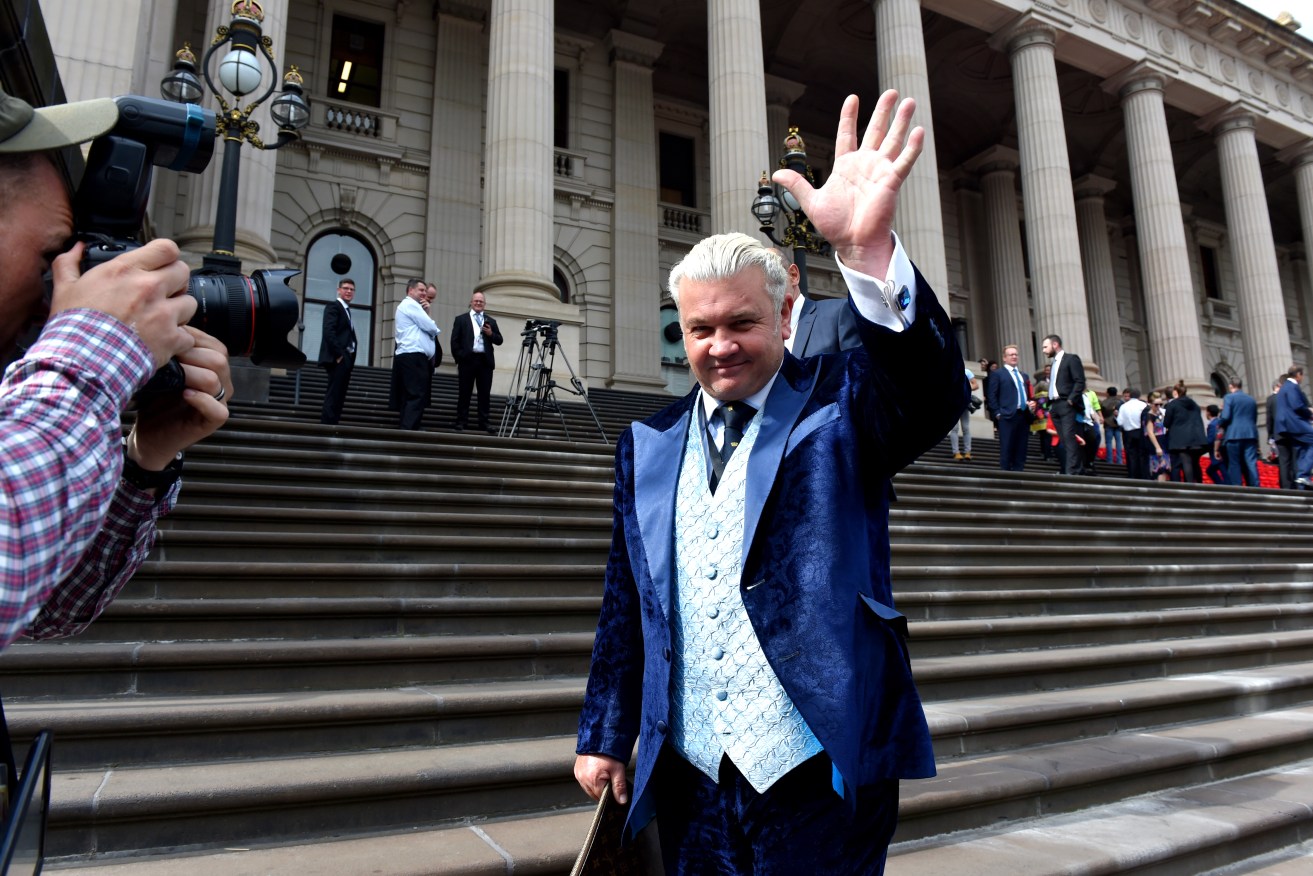“I expect more governments will take up this approach”: Jay’s jury goes to Geelong
Jay Weatherill has issued an “I told you so” over his oft-criticised Citizens’ Jury model, after it was adopted by the Victorian Government as it seeks to mop up in the wake of its dramatic sacking of the Geelong Council.

Sacked Geelong Mayor Darryn Lyons outside the Victorian Parliament. Photo: Tracey Nearmy / AAP
The Government in April moved to dismiss the entire council – including colourful mayor and notorious former paparazzo Darryn Lyons and his deputy Bruce Harwood, the father-in-law of former Adelaide star Patrick Dangerfield – after an inquiry found it had become so dysfunctional and riven with internal conflict and a bullying culture that it could no longer govern properly.
Fresh elections won’t take place till October next year, with an administrator overseeing the region in the interim.
But Premier Daniel Andrews has announced the formation of a Citizens’ Jury to help set the parameters of an overhaul of the next council’s governance structure – to be overseen by Sydney-based newDemocracy Foundation, which selected the 50 jurors involved in this month’s Adelaide forum on the merits of a high-level nuclear waste dump.
The 100-strong Geelong jury will consider how Lyons’ successor is elected, whether a deputy is required, how many councillors are needed and whether the local government area should be subdivided into wards and, if so, whether they should be single or multi-member zones.
Victoria’s Local Government Minister Natalie Hutchins said in a statement that “the Andrews Labor Government wants to know what the people of Geelong think is best for their future council and to help design it”.
“The last council failed to deliver good governance – and a Citizens’ Jury will help ensure that does not happen again,” she said.
Weatherill told InDaily: “I expect more governments will take up this approach in coming years, which is really all about making better-quality decisions.”
“The recent report of the Citizens’ Jury into the nuclear fuel cycle shows us that with access to the right information, everyday South Australians can make high-quality informed judgements,” he said.
Meanwhile, the SA nuclear consultation process changes gear from next week, with an engagement roadshow set to take soundings across the state, with information sessions to be held at over 100 sites – including around 30 Aboriginal communities and 60 regional towns.




